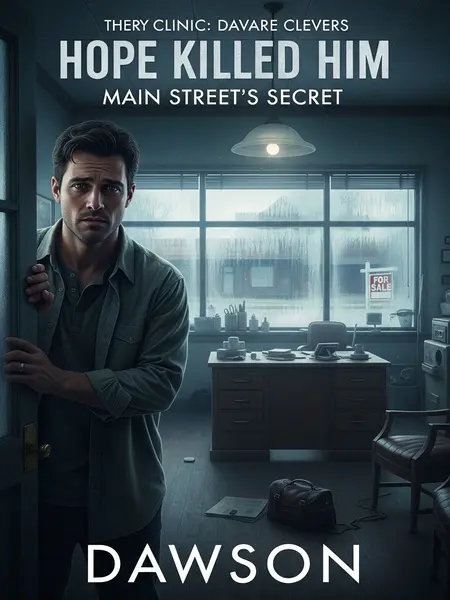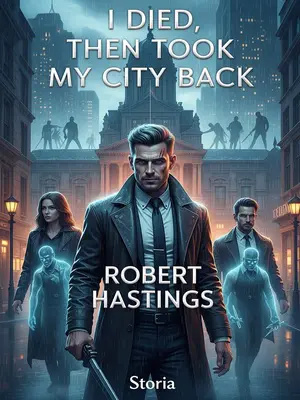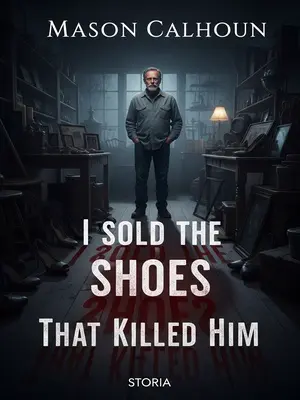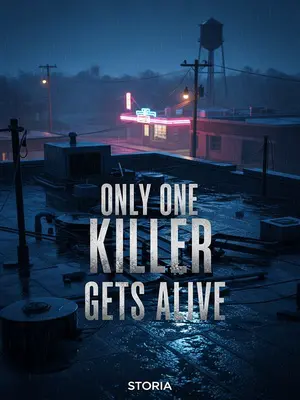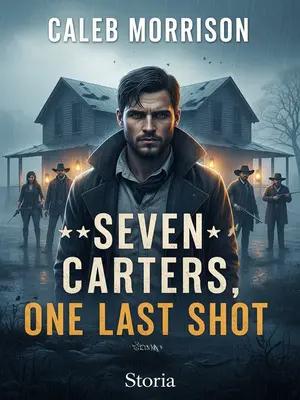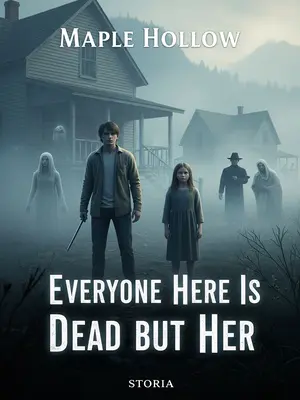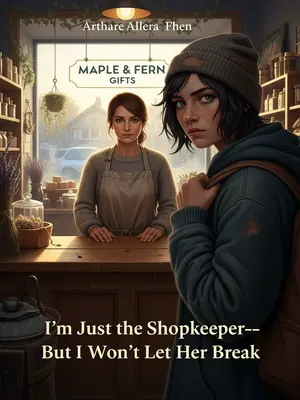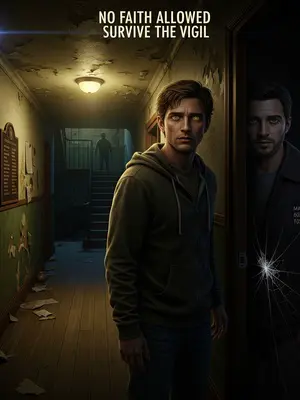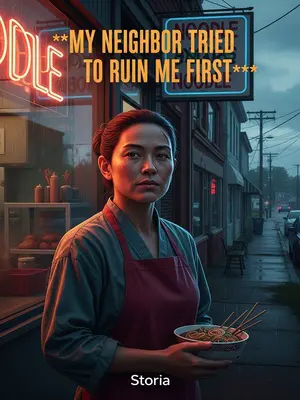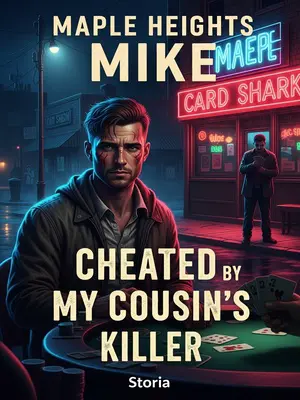Chapter 2: Shadows in an Empty House
The walk home felt longer than usual. Every step was heavy. The familiar clapboard houses, the cracked sidewalks, even the old oak tree on the corner—everything looked different, somehow faded. But when I turned onto my street, the world felt a little more solid. Main Street was still my home, for better or worse.
As soon as I walked in, there he was—my son’s smiling face, looking down from the wall. I’d named him Luke, hoping he’d be quicker than me, not stuck with my shortcomings.
The photo was framed in cheap wood, a little crooked. Luke’s grin was wide, his eyes bright with a mischief I’d never quite understood. I ran my fingers along the edge of the frame, whispering his name like a prayer. Naming him Luke had been my way of wishing something better for him—smarts, luck, a little more light in his life than I’d ever had.
After his mother left, it was just us. Father and son. Twenty years. But he still went before I did. I’d braced myself for the day, but it didn’t help.
The house was always a little too quiet after she left, but Luke filled it with laughter, even on the bad days. I’d told myself a hundred times to be ready, but losing a child is like losing your own shadow. You never really get used to the emptiness.
He’d been diagnosed with kidney failure early on. Over the years, I took him everywhere, tried every treatment, but his health just kept getting worse. All our savings were gone; all that was left was this old house.
I remembered those long nights in hospital waiting rooms. Burnt coffee. Specialists shaking their heads, scribbling notes. It never ended. The house became our last refuge, the only thing the banks hadn’t taken. Every creak of the floorboards was a reminder of what we’d lost—and what we still had.
Three years ago, I was ready to sell the house and try one last time. If it didn’t work, I’d accept whatever came.
I spent nights staring at the ceiling, running numbers in my head, wondering how much I could get for the place. I told myself that if this last shot didn’t work, I’d let go. Sometimes, letting go felt like mercy.
That’s when Dr. Grant moved to Main Street and opened Maple Ridge Clinic.
He arrived with little fanfare—just a battered sedan, a couple of cardboard boxes, and a sign he put up himself. The town didn’t know what to make of him at first, but something about his quiet confidence made people take notice.
At first, I didn’t have much hope. I’d tried every kind of medicine before, and nothing helped. But Dr. Grant was different—with herbal remedies alone, he kept Luke alive, let him live like a normal kid. After all these years, I finally saw a glimmer of hope.
The first time Dr. Grant handed me a packet of herbs, I almost laughed. But week after week, Luke’s color improved. He started going out with friends again, even played pickup basketball at the park. For the first time in years, I let myself believe we might have a future.
Dr. Grant was kind. He never charged for the medicine, just asked me to help clean the clinic when I had time. The place wasn’t big, so cleaning was easy. Compared to what Dr. Grant did for us, it was nothing.
He never made a fuss, never brought up money unless I did. Cleaning was more than payment. It was dignity. My way to give back. Sometimes I’d stay late, sweeping floors while Dr. Grant scribbled notes or brewed another pot of tea. It felt good to be useful.
He did it to spare my pride. So for three years, I went to the clinic almost every day. Being around him, and with his occasional guidance, I picked up a few tricks of herbal medicine myself.
He’d show me how to steep the herbs just right. How to tell ginseng from goldenrod. I found myself listening to his stories, picking up more than just cleaning tips. It was like being let in on a secret, one small kindness at a time.
After we got to know each other, he told me a bit about his past. His wife had been gone for some years—he never said why. His daughter turned against him and settled overseas. There were a few small tins of fancy coffee beans in the clinic, but Dr. Grant only drank tea—he said the coffee was for his daughter.
Sometimes I’d catch him staring at those tins, lost in thought. He kept a faded photo of a young girl on his desk, her smile as bright as Luke’s. He never talked about her, but I could see the ache in his eyes. The coffee tins gathered dust, unopened, a quiet reminder of what he’d lost.
Over three years, Dr. Grant earned tremendous respect on Main Street. Neighbors came to him for every little ache and pain, and he barely charged for minor stuff. Even those the hospital had given up on came to him, and most of the time, he could save them—he only charged for the herbs.
People called him a miracle worker. Some days, I believed it. Folks who’d given up hope found themselves back on their feet, and word spread fast. He never turned anyone away, not even when they couldn’t pay. In a town where everyone knows everyone, that kind of kindness sticks with you.
I once asked him if he wasn’t afraid of losing money doing this. He said he just wanted peace of mind.
He looked at me, eyes soft behind his glasses. "Money comes and goes," he said. "A good night’s sleep is worth more than a fat wallet." I never forgot that.
Soon, it wasn’t just about medicine. Whenever neighbors had disputes, Dr. Grant could settle them with a few words. Living in that kind of environment felt good. Watching Luke live like a normal kid, I was grateful to Dr. Grant from the bottom of my heart.
He’d become the heart of Main Street. When Mrs. Franklin and Mrs. Carter fought over a property line, Dr. Grant settled it with a cup of tea and a gentle word. When the Fourth of July picnic needed a volunteer, he was the first to sign up. It felt like the world was a little brighter with him around.
